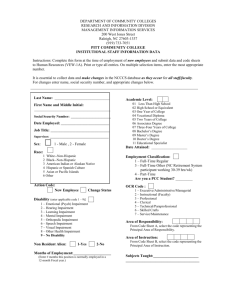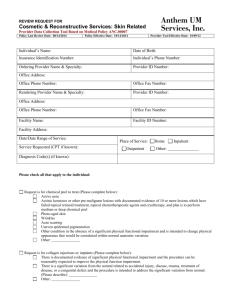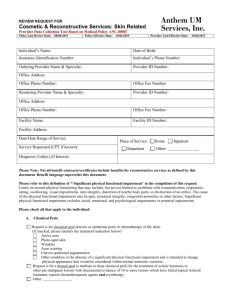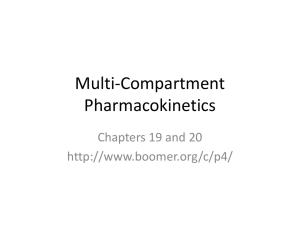Impairment of Assets Under Construction: ID Finance Guide
advertisement
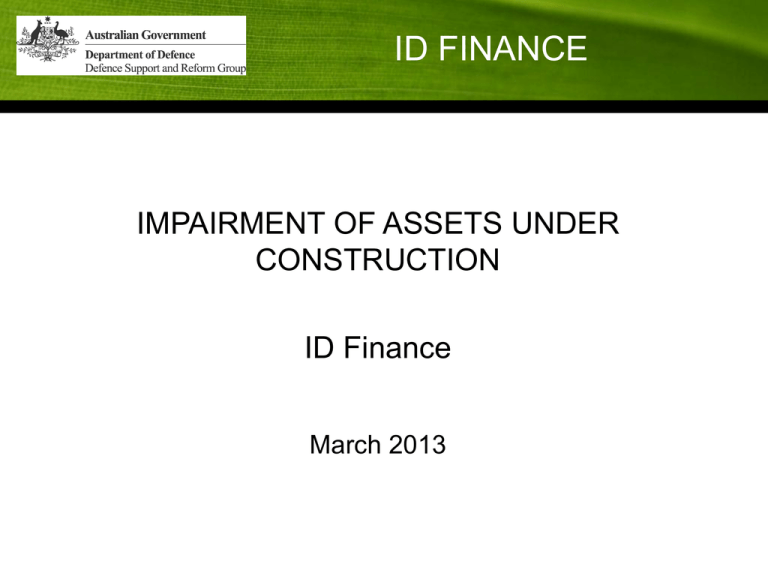
ID FINANCE IMPAIRMENT OF ASSETS UNDER CONSTRUCTION ID Finance March 2013 Overview What is impairment? What are the impairment triggers that apply to ID Major Capital Facilities Projects. Scenarios/Examples of Impairment Why we are required to comply Financial support and assistance. What is Impairment? Reduction in the capability, or expected capability, of the asset. Impairment may exist where an item is damaged, defected or restricted in some way which adversely impacts the performance or operation of the item. For Assets Under Construction (AUC) impairment can be viewed as the inability of the asset to meet its intended capability requirements and considers whether the asset is fit for purpose and will meet the intended requirements of the end user. Result – expense part, or whole, of the AUC Indicators of Impairment The asset does not meet/will not meet expected requirements (i.e. in line with the project scope). Rework has been required on the project. Government decision to discontinue project. Scenario’s – Potential Impairment Reduced capability/capacity of the asset being developed. For instance: - Building is/will not able to be occupied as a result of non-compliance with legislative requirements; - Training facilities with major flaws rendering them unusable. - Fuel handling facilities cannot be used for the purpose intended as they do not meet safety requirements. Note that there may be no impairment if there are plans to remediate within 6 months and all re-work is expensed. Scenarios – Nil Impairment Cost over-runs due to: - scope/specification changes; - changes in compliance requirement e.g. changes in WHS legislation which require higher costs of compliance; Schedule slippages – delays due to poor weather conditions, contractor insolvency, budget constraints. Implications for MCF AUC Should not be an onerous task - the information required to be presented is most likely already known by project managers. The AUC balance of the project being impaired does not impact the ability of the project to spend money, commit funds or continue as intended. It does not change the overall project expenditure, but may impact value of expenditure allocated to AUC v’s expense lines within the project. Next Steps Finance to provide list AUC balances by Project to Executive Directors and Directors (if not already provided). Review of AUC balances >$50K (in accordance with Defence policy) Identify which projects may have indicators of impairment – discuss these with myself/Dianne. Provide a consolidated response by Region (sign off by Executive Director) for projects with nil impairment (grouped response). Compliance Impairment is a requirement of Australian Accounting Standards (AASB 136) Directed by CFO – all Groups/Services in Defence required to comply with policy Meet requirements for presentation of Defence Financial Statements (responsibility of $1.3b AUC balance for Defence) Further information… We are here to assist and direct this review to ensure you get the right advice. Contacts: Ariana King 626 68177 Assistant Director ID Finance Ross Lawler 626 68576 Director ID Finance Dianne Gillard 626 68110 Business Analyst CFI Finance QUESTIONS ?
